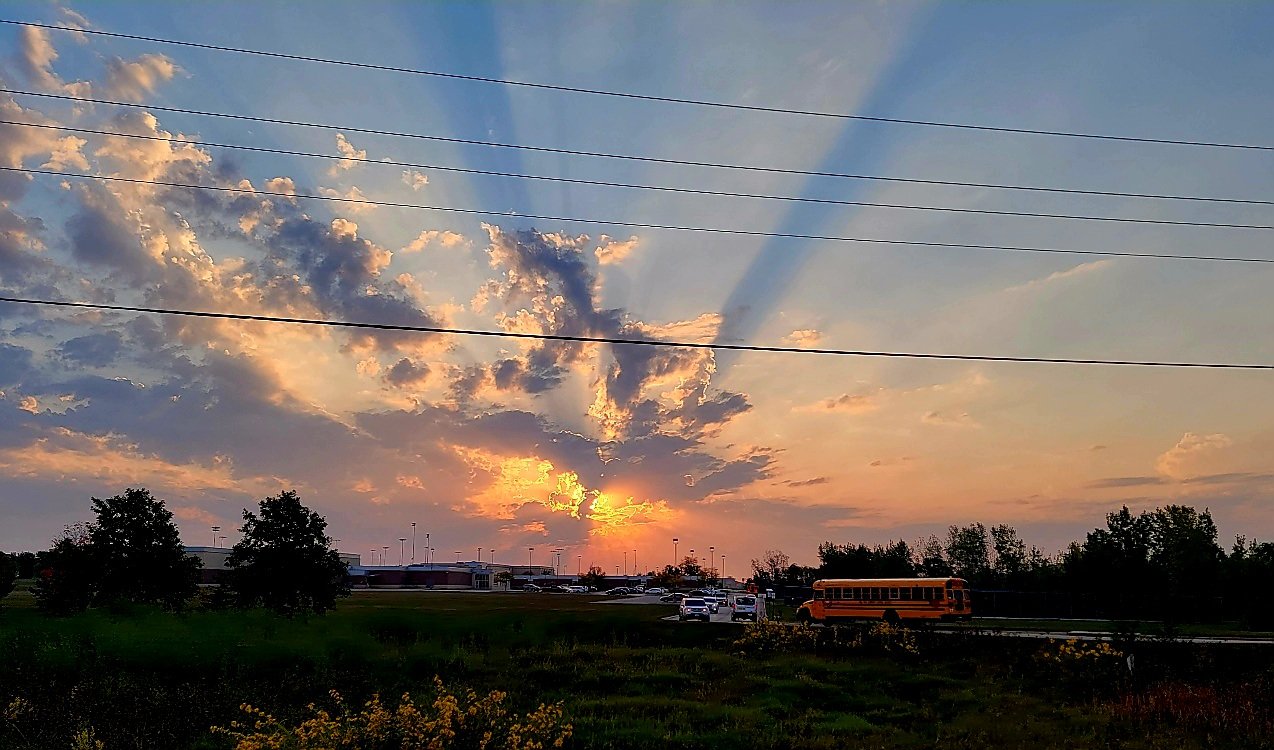-
Posts
862 -
Joined
-
Last visited
Content Type
Profiles
Forums
Events
Everything posted by Matthew
-
A. The people's needs are more important. Minority rule over any society is fundamentally unjust. B. The electoral college does nothing to make presidental candidates care more about small states. Only 7 states matter in the current election in terms of wooing attention. What a garbage response by someone preaching authoritarianism. No. But a more analogous example would be a voting system where black people's votes each counted as like 5 votes, to an extent that they were able to control the outcome of most elections. You're logic is that this would be fair and protect everyone's rights better. Correct?
-
Why does your reasoning here not apply at the state level? If a majority decision is tyranny, then how does the EC protect local interests from being overpowered by the majority of their state? My mostly suburban district here in northeastern iowa is always overpowered by the more rural majority of my state. According to your logic this is unjust, correct?
-
These are publicly available. I'm not interested in your diversion tactics becoming homework assignments for me. You need to decide what your point is. States voting rather than people is literally the thing you're defending when you are claiming that democracy is bad and and that states 'have to' exist and and their interests are ultimately more important than what the people want. Pick a lane--either you're for a democratic society or you're for the anti-democracy of the electoral college. The US founders wanted the electoral college to capture "a sense" of what the people want but by design they did not want it to be democratic. So straining to claim that it's democratic is a dead end argument for you. Reductio ad aburdum pseudo-reasoning. If even the tiniest viewpoints can't be represented, then why represent anyone is what you're saying. Once again you're clearly against people being democratically represented, so why do you sometimes pretend otherwise? That is not why it exists. It exists because of the federalist structure of the government. Back in 1789 it was seen as a way to manage states choosing a chief executive and giving them the sovereignty to decide how to choose their electors. Many states initially just had state legislatures chose their electors. Democratic ideology did not pick up until around the 1820s, so states gradually switched to a vote. But I do agree with you that the parliamentary system is a better system for choosing an exective. The separation of powers and federalism experiments are a failure and has created the exact opposite of what the founders intended. Don't be obtuse, we're talking about who gets to have a say in the election. Making the electoral college proportional would still be flawed but it would be less flawed. You're claiming that doing so would be impossible. Now there is flat out lie. You implied voters were roughly equal. They are not, by far and rather than own up to it you're just fabricating numbers now. Societies mitigate against a tyranny of the majority by safeguarding the rights of those in the minority. Due process, free speech, and a host of other civil rights and liberties. Subverting democracy by having a rule of the minority is simply a tyranny of the minority-- the typical state of affairs in all authoritarian societies which you are defending. What prevents democracy in most societies is a powerful minority of elite interests who keep the masses of disadvataged ordinary people largely out of the political process.
-
It's happened 90-some times. It's basic encyclopedic information. They don't. The states do. The people vote for electors. 2.2% of Californians voted for minor parties. Based on CA having 54 electors, a candidate would need to get at least 1.8% to earn an electoral vote. A state with less electors would have a higher threshold. But your point that proportionality would be "impossible" is clearly false. You don't know what you're taking about. You should learn how it works rather than making stuff up. Also I see you've given up trying to defend the problem of the EC giving more voting power to some citizens over others in state contests. Baby steps, but still progress. Good job! That's not democracy. You should read about the principles of a democratic society rather than making up nonsense.
-
Lol you really should read a book or something. They are called faithless electors. No the people don't vote for president. On the November election day voters vote for a group of electors. In December the actual voters (538 electors) do the actual vote. Sure it is. 34% of California voters voted for Trump in 2020. If the system reflected that then 18 of California's electors would be republicans. See? Not difficult. LOL. Ok so let's just look at the last presidental election. 17,785,151 votes were cast in California and 278,503 were cast in Wyoming. So an elector in CA is worth 329,354 2020 election day voters while in WY its 92,834 2020 voters. You can try to polish this turd all day long if you can't get around the absurd inequalities of this voting system.
-
No, they can vote however they want. I'm not. The land gets to vote though and not the people. Nope, if it were even attempting to directly reflect the people's choice, then each state would send electors proportional to the candidates that received votes. Its true I don't know how many citizens there are vs non-citizens nor did I see the point you were trying to make, but I see what you're getting at so let's find some estimates to see if it matters (spoiler alert: it won't). Looks like California's population is 38.9 million. 6% of the state's population is undocumented. So that would be about 2,334,000 undocumented. Just to make you happy let's double that and say 4 million (Btw you could quadruble, quintiple it etc and it still wouldn't balance out). That leaves 34.9 million Calufornia citizens and 54 electoral votes. That's 646,296 US citizens per elector. Over in Wyoming there are 576,851 people. They have about 22,000 undocumented. Just to help you out, let's not even subtract that number. So with 3 electoral votes thats 192,283 per elector. For a California elector to be equal with a wyoming voter you'd have to get California down to just 10,383,282 people-- eliminating 28.6 million Californians.
-
Only 538 people vote for president. Democracy is people choosing, not land. The electoral college does not represent people, it represents territories. Oopsie, I guess you have no relevant response to people in states not being fairly represented by the electoral college. But good luck pivoting to some immigration BS. The electoral college gives a huge boost to states with more illegals. Because it doesn't represent people it represents states based on their raw populations. Functioning democracy would be based on citizens voting.
-
Ah emoji time. We all know what that means. Territories voting is not people voting and it subverts the principle of voters being equal at the ballot box. Nope. 50.1% of the state contest turns into 100% of the states electors. Territories voting rather than people = voters being ignored. Poor analogy. Electors ARE the actual (and only) voters for president. People who count the votes are not. Sure I'm happy to help you learn more about this system you're trying to defend. Wyoming for example has 3 electors and a population of about 500,000. That's 166,666 people per elector. In California there are 40 million people and they get 54 electors. That's 740,000 people per elector. I've never had any opinion on that issue.
-
Lol first you try to deny that it's the territoy that gets to vote and then one sentence later you admit reality that it's the territory that gets to vote rather than the citizens. 538 total people get to vote for president. Within the state contests for electors, some people's votes count more than other people's votes.
-

Zuckerberg admits censorship.
Matthew replied to CouchPotato's topic in Federal Politics in the United States
On the original issue, did the government force Facebook to censor the covid conspiracies etc or just ask them to? Forcing them to would be a 1st amendment free speech issue for Facebook (meaning Facebook's free speech right to control content on their own privately owned property). But if it was not coersive, then Facebook was just willingly using their private property to allow the type content they wish while willingly following a request from the government. -
Obviously. But, what we're taking about is democracy where actual people matter most and get to vote vs federalism where artifical state territories matter most and get to vote. A total of 538 people get to vote. I know you're bad at math but I think you can figure out that 300 million would be a higher number if all adult citizens could vote for president. Furthermore, in the state contests to choose electors, once a party gets past 50%, none of the other party's votes have any say in the election. And since most states are non-competitive, only the votes in 5 or 6 states actually determine the outcome.
-
I think 2015-2016 saw a moderate increase in people in the US who have a positive attitude towards socialism, peaking and leveling off somewhere in the 30-40% range. As an ideology by itself it's too complicated for most people in the absence of any plainspoken American political figure advocating that viewpoint.



